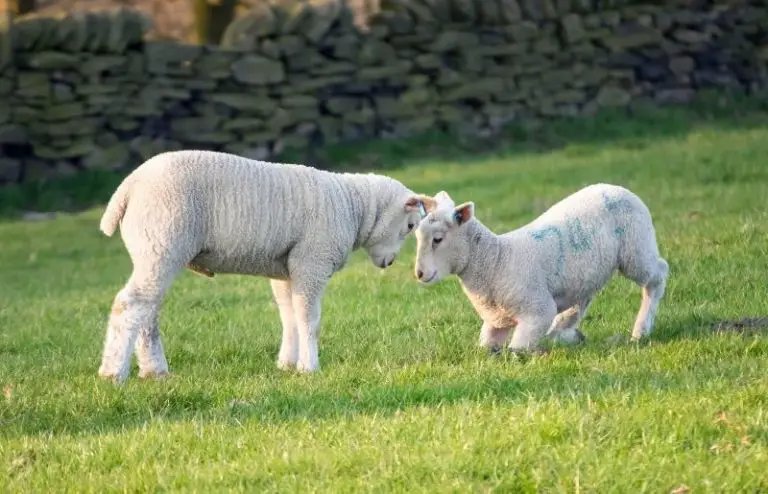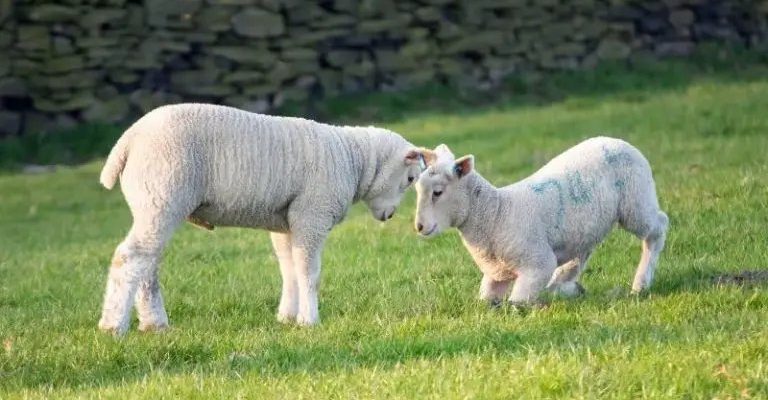
Imagine you’re at a party, and you’re the only one there—it’s going to feel pretty awkward, right? That’s how sheep feel when they’re alone. They are naturally social creatures that rely on each other’s company for comfort and safety. In this article, we’re going to dive into the world of sheep flock behavior, exploring why these animals need companions and the various aspects of their social lives.
Understanding the Basics of Flock Behavior
Flock behavior isn’t just a fancy term; it’s a vital aspect of sheep life. Sheep are herbivores that spend most of their day grazing, but what they do in between those munching sessions is just as important. When sheep are in a group, they tend to feel secure. This is because, in nature, there’s safety in numbers. If a predator approaches, a united group can better defend itself compared to a lonely sheep.
You might be wondering, “What exactly do they do in a flock?” Well, they engage in various activities like grazing together, grooming one another, and even playing. These social interactions help strengthen bonds and establish a hierarchy within the group. Dominance plays a role, as there are usually leaders who guide the flock, while others follow. This dynamic helps them navigate their environment smoothly and reduces stress.
Why Companionship Matters to Sheep
Sheep rely heavily on companionship for emotional well-being. Just like you might seek comfort from friends when you’re feeling down, sheep do the same. When they’re with their flock, they feel less anxious and more relaxed.
Research shows that sheep can even recognize and prefer the company of specific individuals. This means they don’t just hang out with any sheep—they form friendships! A sheep that’s isolated from the group can experience stress similar to that of humans. It’s clear that companionship isn’t just a nice-to-have; it’s essential for their mental health.
The Effects of Isolation on Sheep
When sheep are separated from their flock, they can experience severe stress. You might think that sheep are tough animals, but they can actually suffer emotionally. Signs of stress can include vocalizing more than usual, pacing, or even refusing to eat.
In a study, researchers observed that sheep kept alone showed higher cortisol levels, indicating elevated stress. This is similar to how some people feel when they’re isolated for too long. Imagine how unsettling it would be to be put in a room where no one is around—you’d probably feel anxious, right? That’s what it’s like for sheep when they’re alone.
Social Learning in Flocks
Another fascinating aspect of sheep’s need for companions is social learning. Sheep learn a lot by observing their flockmates. For instance, if one sheep discovers a new source of food, others will often follow. This behavior helps ensure that the entire flock stays healthy and well-fed.
Social learning also plays a crucial role in teaching lambs essential skills. Young sheep watch their mothers and other adults to learn about grazing, foraging, and even how to avoid dangers. This process is similar to how children learn from their parents. Without a flock, lambs miss out on these critical learning opportunities.
What Happens When You Keep Sheep Alone?
If you were to keep a sheep alone permanently, it could lead to numerous problems. As I mentioned earlier, stress is a major concern. But the issues don’t stop there. Loneliness can affect their physical health, leading to a weakened immune system and other vulnerabilities.
You might be tempted to think a sheep could get used to being alone, but that’s rarely the case. It’s like trying to convince someone to enjoy a movie by themselves after they’ve always watched with friends. The experience just isn’t the same, and often, it’s less enjoyable. Therefore, keeping sheep in groups is not just beneficial—it’s necessary for their overall well-being.
Creating the Ideal Flock Environment
If you’re considering raising sheep or thinking about their welfare, creating the right environment is key. Start by ensuring at least two sheep are together to avoid isolation. The more, the merrier! A small flock can greatly enhance their social experience.
Also, provide enough space for them to roam and graze. Sheep are naturally curious and need room to explore. The more stimuli they have—like various terrains or other animals—the happier and healthier they’ll be. And don’t forget about enrichment! Things like sheep toys or obstacles can keep them engaged and mentally stimulated.
Final Thoughts on Sheep Companionship
Understanding sheep and their need for companions opens up a whole new world of animal care. Just like we cherish our friendships, sheep thrive on their social connections too. By allowing them the freedom to flock together, you’re not only ensuring their happiness but also promoting their health.
At the end of the day, sheep are not just fluffy creatures grazing in fields. They are social beings that rely on each other for comfort, learning, and survival. So, if you ever find yourself pondering whether sheep need companions, remember: their happiness depends on it.

